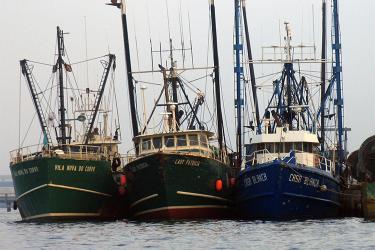The 2021 amendments to the Atlantic Large Whale Take Reduction Plan remove the requirement for weak link at buoys and other surface system flotation devices, and add requirements for weak rope or insertions within the buoy line.
Weak links at the buoy may still be used voluntarily. Weak rope can also be used on any buoy line down to the lowest point where a weak insert is required. Use of 100 percent weak rope is also allowed in place of inserts.
Northeast lobster and Jonah crab trap/pot management areas where changes have been made to weak inserts requirements are below. Requirements for all other areas, other trap/pot fisheries, and gillnet fisheries remain the same.
See the approved weak inserts.
See the approved weak ropes.
Weak Insertion/Line Requirements
| Area | Weak Insertion/Line Requirements |
|---|---|
| Maine Exempt Waters | See State Regulations |
| Maine Exempt Line-3 nm | 1 weak insert 50% down the line OR top 50% of buoy line weak rope |
| New Hampshire State Waters | |
| Massachusetts State Waters | Weak inserts every 60 feet OR full weak line in the top 75% of line |
| Rhode Island State Waters | |
| LMA 2 | |
| Maine Zone A West, B, C, D, E, Federal Waters 3-12 nm | Weak inserts at 25% and 50% down the line OR top 50% of buoy line weak rope |
| Massachusetts and New Hampshire LMA 1, Outer Cape Cod, Federal Waters 3-12 nm | |
| Maine Zone A East, F, G, Federal Waters 3-12 nm | 1 weak insert 33% down the line |
| LMA 1 and Outer Cape Cod beyond 12 nm | |
| LMA 3 | Top 75% of one buoy line is weak rope. Bottom 25% can be higher strength |


